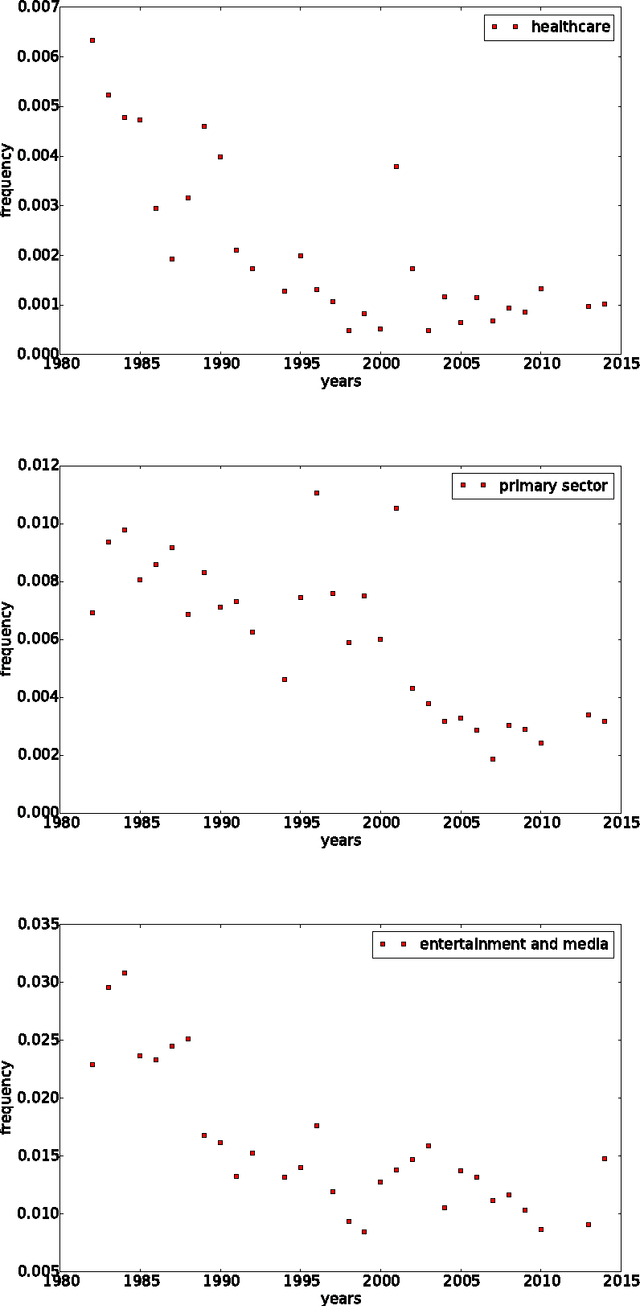Peter John
Volatility in the Issue Attention Economy
Aug 27, 2018



Abstract:Recent election surprises and regime changes have left the impression that politics has become more fast-moving and unstable. While modern politics does seem more volatile, there is little systematic evidence to support this claim. This paper seeks to address this gap in knowledge by reporting data over the last seventy years using public opinion polls and traditional media data from the UK and Germany. These countries are good cases to study because both have experienced considerable changes in electoral behaviour and have new political parties during the time period studied. We measure volatility in public opinion and in media coverage using approaches from information theory, tracking the change in word-use patterns across over 700,000 articles. Our preliminary analysis suggests an increase in the number of opinion issues over time and a growth in lack of predictability of the media series from the 1970s.
Transfer Topic Labeling with Domain-Specific Knowledge Base: An Analysis of UK House of Commons Speeches 1935-2014
Aug 27, 2018

Abstract:Topic models are widely used in natural language processing, allowing researchers to estimate the underlying themes in a collection of documents. Most topic models use unsupervised methods and hence require the additional step of attaching meaningful labels to estimated topics. This process of manual labeling is not scalable and suffers from human bias. We present a semi-automatic transfer topic labeling method that seeks to remedy these problems. Domain-specific codebooks form the knowledge-base for automated topic labeling. We demonstrate our approach with a dynamic topic model analysis of the complete corpus of UK House of Commons speeches 1935-2014, using the coding instructions of the Comparative Agendas Project to label topics. We show that our method works well for a majority of the topics we estimate; but we also find that institution-specific topics, in particular on subnational governance, require manual input. We validate our results using human expert coding.
Complex Politics: A Quantitative Semantic and Topological Analysis of UK House of Commons Debates
Oct 13, 2015



Abstract:This study is a first, exploratory attempt to use quantitative semantics techniques and topological analysis to analyze systemic patterns arising in a complex political system. In particular, we use a rich data set covering all speeches and debates in the UK House of Commons between 1975 and 2014. By the use of dynamic topic modeling (DTM) and topological data analysis (TDA) we show that both members and parties feature specific roles within the system, consistent over time, and extract global patterns indicating levels of political cohesion. Our results provide a wide array of novel hypotheses about the complex dynamics of political systems, with valuable policy applications.
 Add to Chrome
Add to Chrome Add to Firefox
Add to Firefox Add to Edge
Add to Edge